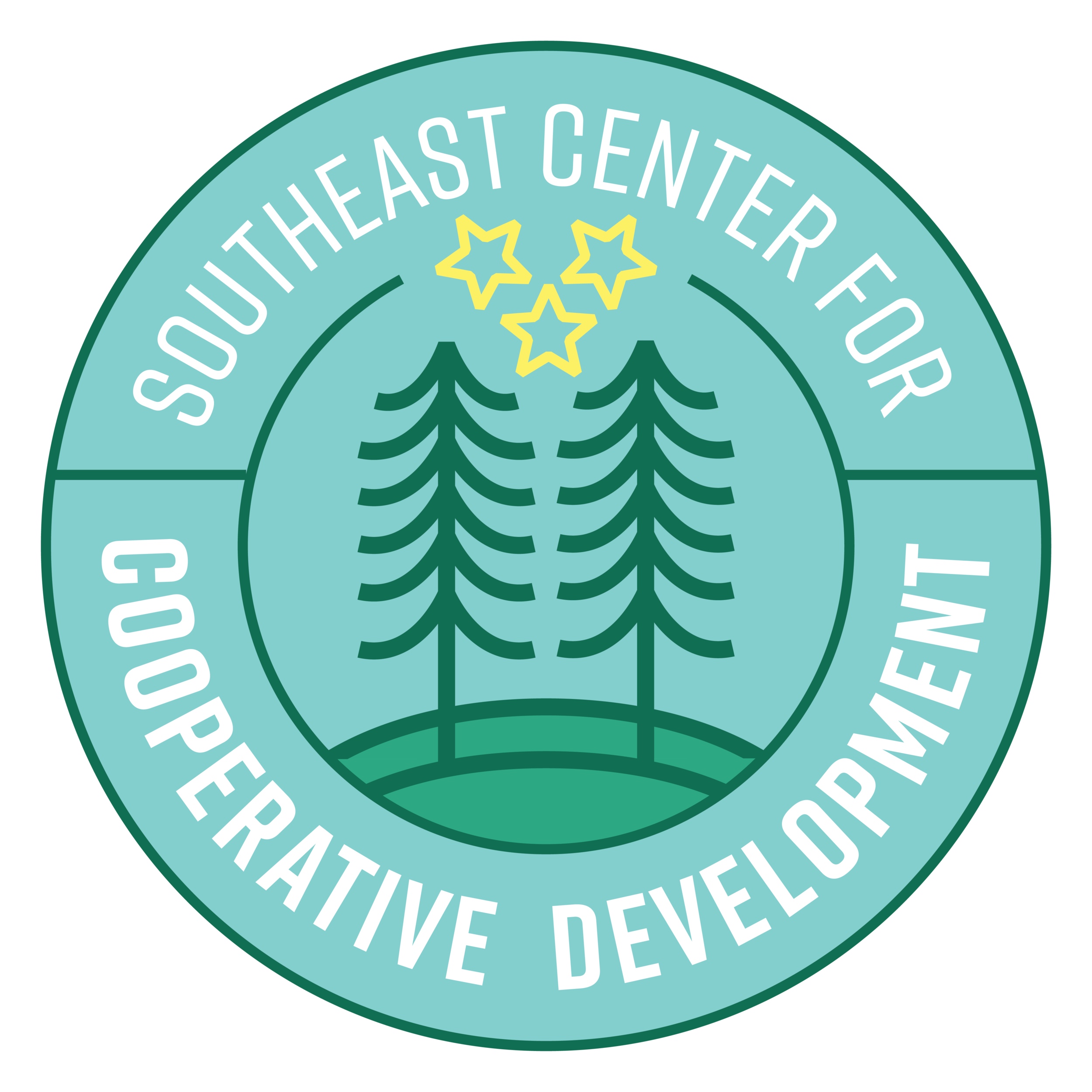Our Story
It all started when…
…the Southeast Center for Cooperative Development (“SEC4CD”) was incorporated on February 12, 2018 as a Tennessee nonprofit corporation. The mission of SEC4CD is to educate the public about worker cooperatives and increase economic opportunities for underserved individuals and communities in the Southeastern United States. We received our 501(c)(3) designation in May of 2019. SEC4CD grew out of the activities of Nashville Organized for Action and Hope (“NOAH”), a 501(c)(3) public charity.
The Southeast is the poorest region in the United States.[1]It is home to nine of the nation’s ten poorest states and has far lower economic mobility than the country as a whole.[2]Even as some Southeastern cities, such as Nashville, undergo dramatic economic and population growth, the result is higher inequality and expanded pockets of poverty. Between 2000 and 2015, the poverty rate in Nashville increased by 6%, to nearly 19% of county residents. African-American and Hispanic residents, who together comprise 40% of the population, have poverty rates of 29% and 36%, respectively.
While unemployment in Nashville has declined, many of the jobs that have been created do not provide sufficient wages to sustain a family, much less lift people out of poverty. According to the National Low Income Housing Coalition, renting a two-bedroom house in Metro Nashville required 2.5 full-time minimum wage jobs ($7.25/hour) in 2017.[3]Put differently, a worker needed to earn nearly $19/hour to afford to rent a 2-bedroom house. According to the Department of Labor, 62.3% of Nashville area workers earned less than this. African-American and Hispanic residents earned a median wage of only $11/hour and $16/hour respectively, compared to $20/hour for white residents. Thus, while employment has grown in the Nashville area, most of the jobs created do not pay a livable wage.
The income disparity has contributed to growing wealth inequality. The wealthiest 20 percent of ZIP codes in the Metro Nashville area have an average net worth that is 5.7 times greater than the average net worth of the bottom 20 percent.
In order to address the problem of intractable and expanding poverty, a group of community organizers, students, academics, faith and labor leaders convened to learn more about how the cooperative business model could be a useful alternative for creating good jobs and community wealth for Nashville area residents. On December 5, 2015 cooperative developers and worker-owners from all over the US held workshops, discussions, and presentations on TN State University’s campus attracting over 100 participants.
Our first conference (December 2015)
Since this event a group of Nashville Organized for Action and Hope’s (NOAH) Economic Equity and Jobs task force members has met regularly to initiate the formation of a cooperative development center in Nashville. (NOAH is a coalition of 44 interdenominational churches and 16 community and labor groups.)
Robert “Benny” Overton took the lead on forming the center and together with Rosemarie Henkel-Rieger has been offering cooperative entrepreneurship classes at Tennessee State University and at various community venues. We use an interactive model and invite guest speakers and worker-owners from around the US.
Students from all walks of life, college and graduate students, union members, retirees, business owners and former business owners, have enrolled in these courses. TSU faculty members Dr. Ruthie Reynolds, Director of the Center for Entrepreneurship and Economic Development, and Sammy Comer, Assistant Professor of Agricultural Sciences have also been actively involved in these classes.
In addition to educating the public about worker cooperatives, the SEC4CD is providing education and technical assistance to worker cooperatives, providing microfinance services to worker cooperatives, researching matters related to worker cooperatives, and coordinating educational immersion trips focused on worker cooperatives.
__________________________
[1]Income and Poverty in the United States: 2016, U.S. Census Bureau, 15 (2017).
[2]Measuring State Economic Mobility, The Pew Charitable Trusts (2012), http://www.pewtrusts.org/en/multimedia/data-visualizations/2012/economic-mobility-of-the-states. Nine states, all located in the South, were found to have lower upward mobility and higher downward mobility than the national average.
[3]This calculation follows the generally accepted standard that households should not spend more than 30% of gross income on housing.

